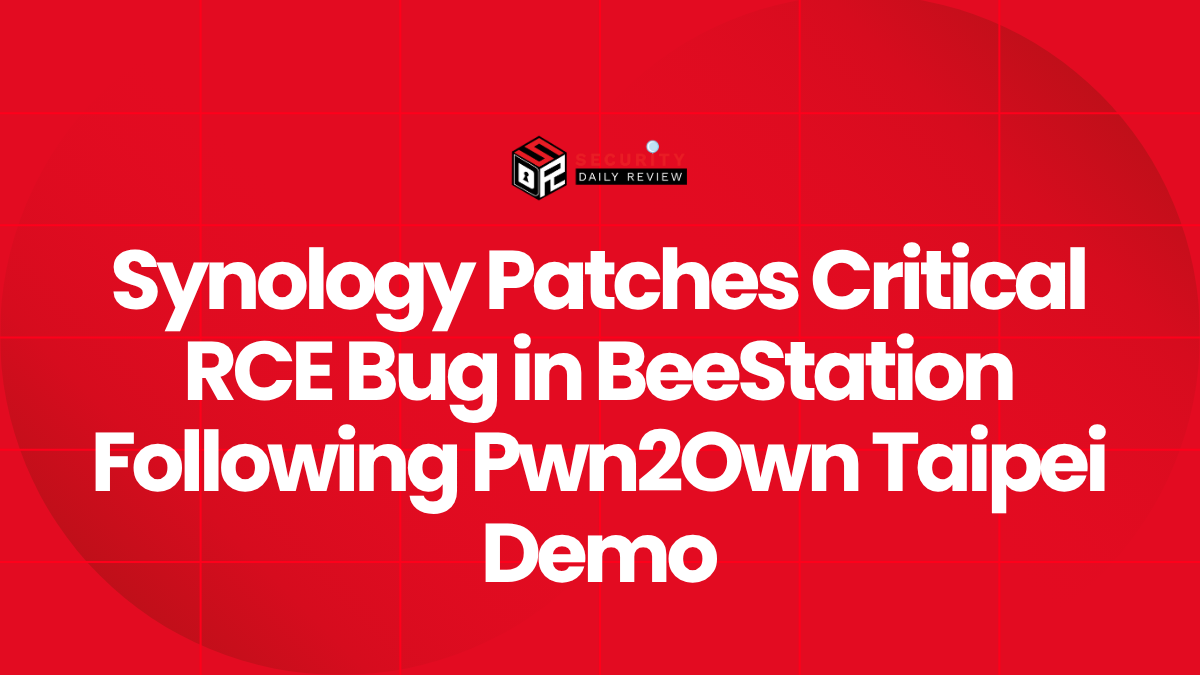Synology has released a security update for its BeeStation storage product, addressing a critical remote code execution (RCE) vulnerability demonstrated live during the Pwn2Own 2025 hacking competition in Taipei. The flaw, now tracked as CVE-2025-22082, posed serious risks to affected devices and exemplifies the growing need for rigorous application security within consumer-grade network infrastructure.
Security Flaw Demonstrated in High-Profile Hacking Contest
BeeStation—a plug-and-play private cloud storage device targeted at home and small business users—was exploited by cybersecurity researchers at the Zero Day Initiative’s Pwn2Own event in April 2025. During the live demo, contestants demonstrated a pre-authentication RCE exploit that allowed full remote takeover of the BeeStation system without requiring user interaction.
The exploit involved manipulating the device’s access control mechanisms and leveraging improper input sanitization in one of the embedded web services. While full technical details remain embargoed to allow vendors time to patch, the demonstration revealed that the vulnerability could be weaponized in real-world scenarios for espionage, data theft, or even lateral movement inside compromised networks.
“We take the security of our products and our users’ data very seriously,” a Synology spokesperson said. “We appreciate the responsible disclosure and the opportunity to address the issue promptly.”
CVE-2025-22082 Poses Critical Risk With Network Exposure
The now-disclosed vulnerability, assigned CVE-2025-22082, received a critical CVSS severity rating due to its network accessibility, pre-authentication nature, and the potential for full system compromise. Attackers remotely exploiting this flaw could gain root-level access, deploy secondary payloads, or exfiltrate sensitive user data stored on BeeStation appliances.
According to Synology’s advisory, the vulnerability affects BeeStation product version 1.1 and earlier. The vendor urges users to update to version 1.2 or newer, which eliminates the exploit path by applying more stringent input validation and improving isolation between service components.
Patch Details and Action Guidance for Users
Synology pushed the firmware update via its standard update channel and continues to monitor the situation for post-patch exploitation attempts. Users are advised to take the following steps:
- Update BeeStation to firmware version 1.2 or higher immediately
- Disable WAN access to the BeeStation management interface unless strictly necessary
- Enable automatic firmware updates to reduce exposure windows for future vulnerabilities
- Monitor device logs for suspicious remote access attempts
The patch removes the vulnerable endpoint and enhances sandboxing, mitigating both this critical flaw and similar classes of bugs. Synology has confirmed the efficacy of the patch, and no exploits in the wild have been observed as of publication.
Broader Implications for Vendor Security Policies
This incident underscores the importance of proactive security policies and engagement with the white-hat research community. The Zero Day Initiative’s Pwn2Own competitions have become a vital channel for identifying high-risk software vulnerabilities under responsible disclosure guidelines. Synology’s swift response suggests increasing maturity in how IoT and NAS (Network Attached Storage) vendors are handling product security lifecycle management.
It also points to the growing pressure on consumer-focused vendors to build secure-by-default storage systems as remote work and hybrid cloud deployments become more commonplace. BeeStation, aimed at non-technical users, is expected to maintain low administrative overhead—which includes automated updates and safe default configurations.
Given the lucrative nature of remote code execution bugs for threat actors, owning critical infrastructure platforms like BeeStation can offer attackers persistent footholds into private environments. Organizations deploying such systems as part of hybrid IT stacks should treat them with the same risk posture applied to enterprise-grade assets.
A Timely Reminder of Vulnerability Management Best Practices
The discovery and rapid patching of CVE-2025-22082 provide a timely reminder of several cybersecurity fundamentals. Regular vulnerability scanning, timely patch application, and participation in coordinated disclosure through programs like Pwn2Own remain essential defenses even for small businesses and individual power users.
As RCE vulnerabilities continue to dominate the threat landscape—especially on network-exposed endpoints—proactive security updates and hardened configurations should become standard policy. The Synology BeeStation incident highlights why continuous security testing and engagement with professional exploit researchers is a best practice across all segments of IT infrastructure vendors.









